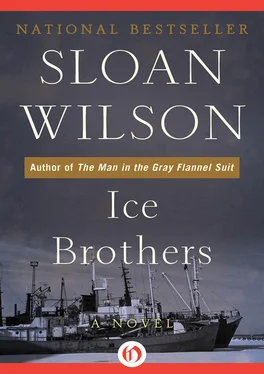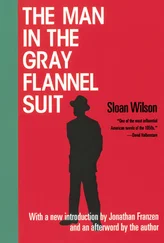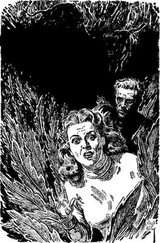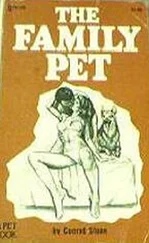The next day was the first really warm sunny one that spring. After being urged by Mr. Farmer, all hands washed clothes and hung them on the rigging and rails to dry. All the bedding was also hung out to air. The ship looked like a gigantic laundry rack.
Paul had no warning that their new commanding officer was to come aboard that day, and no inkling of what kind of a man he would turn out to be.
Clifford P. Mowrey, who for decades had been known to regular Coast Guard officers as “Mad Mowrey” (a name with which he often introduced himself), arrived at the gate of the shipyard where the Arluk lay, in a black Buick convertible driven by a middle-aged grass widow he had met the night before at the Essex House bar. On that surprisingly warm April afternoon he wore his khaki uniform with the two-and-a-half gold stripes of a lieutenant commander on the shoulder boards and four rows of multicolored campaign ribbons on his chest. He was fifty-two years old, with a head that looked sixty and a body that looked thirty. His short gray hair had been dyed an improbable shade of inky black, and what there was of it was carefully combed. He smelled strongly of perfumed hair oil and shaving lotion. He had a big beefy face with the battered red nose of a retired prize-fighter — he had, in fact, once been light heavyweight champion of the navy’s China fleet. His false teeth seemed unusually white in his red face and gave him a sharklike, if dazzling, smile. He wore dark glasses. His neck was so short and thick that it hardly existed at all between his massive, high sloping shoulders. He had no pot belly and no waistline — his body was almost a perfect cylinder, but his thighs were still muscular in his tight khaki pants and his legs were unusually long. He wore the cuffs of his trousers tucked into the tops of highly polished brown jackboots. In his right hand he carried a nonregulation overseas cap made of golden sealskin with the Coast Guard insignia attached. He put this on at a rakish angle after kissing his driver good-by. He marched through the gate with the cocky strut of a drill sergeant.
When the sentry saluted and said, “What ship, sir?” he returned the salute with precision, said, “I know where I’m going,” and brushed impatiently by. The sentry had been told always to ask for identification, but he didn’t dare.
While all this was going on, Paul was standing on a steel gun deck that had just been installed forward of the bridge of the Arluk . Four shipyard workers were welding this to some heavy steel cones about four feet high, the pedestals of 20-millimeter antiaircraft guns. The sparks from their torches were shooting into the blankets and clothes drying on the rail and an unruly group of seamen and machinists’ mates was loudly objecting. To reply to their accusations, a stout welder took off her mask, revealing a mass of dark red hair. Realizing for the first time that she was a woman, the crew gathered around, giving loud catcalls and whistles. The woman yelled indignantly at them in a high, piercing voice, and amid much laughter a machinist’s mate invited her down to the engineroom for activities which, he said, would be much more helpful to the war effort than welding. The woman started to swear, the men began to laugh, and Paul began to yell, “Quiet, silence!” but no one paid the slightest attention to him.
At this moment Mowrey stepped between two blankets that were hanging from a clothesline over the rail, and like an actor stepping through a curtain, jumped to the well deck, his jackboots making a sharp report on the pine decks which was heard above the pandemonium. Everyone turned toward him and there was instant silence. Mowrey stood almost at attention, the sun gleaming on his dark glasses and gold accoutrements. His haughty gaze traveled from the bow, where underpants flapped on the railings, over the motley crew amidships, to the stern, where more shirts and blankets flapped on every rail and line. He said nothing, and his silence, which became more and more tense as it continued for a full minute, was more effective than any disgust he could have voiced. When he finally spoke his voice astonished everyone because it was deceptively calm, even pleasant, and he gave a strange smile, which was somehow both sweet and ominous.
“Is the executive officer aboard?” he asked.
Snapping out of a kind of trance, Paul hurried to him and saluted. “I’m the exec,” he said. “Paul Schuman.”
Mowrey returned the salute gravely. “I am your new commanding officer. Bring the men to quarters and I shall read my orders.”
“Quarters, quarters!” a coxswain started to yell without being asked, and the cry was repeated throughout the ship. Men poured from hatches. They formed three lines on the well deck and they looked like a bunch of pirates, Paul realized suddenly. Because most of their clothes were drying, many of them wore dirty dungarees and no shirts. The knowledge that they were now assigned to the Greenland Patrol had caused many of them to start beards which were new enough to look thoroughly disreputable. They stood uneasily, scratching their arms and blinking into the bright sunlight.
“Attention,” Paul said.
The men stiffened into uneven lines. Farmer, who stood in the front row, kept rubbing his chin nervously. At this moment Green walked from the wardroom. He had been studying Knight’s Modern Seamanship most of the night and had been asleep when he heard the men yelling “quarters.” Uncertain of what this meant, he had simply put on his rumpled blue uniform and without bothering to shave, was ambling forward. His tall, stooped, gaunt figure looked the very antithesis of everything military as he leaned against the big winch to watch the strange proceedings. Mowrey stared at him unbelievingly for an instant, but looked away without saying anything. There was another long minute of tense silence.
“At ease!” Mowrey finally barked.
The shoulders of the men slumped a little, but they still looked anything but at ease.
“My name is Clifford P. Mowrey. I shall now read my orders.”
Taking a crisp envelope from his coat pocket, Mowrey extracted a piece of paper and read in a deliberate monotone: “To Clifford P. Mowrey, lieutenant commander, United States Coast Guard. From, Commandant U.S. Coast Guard, Washington, D.C. Subject: Order to active duty. Paragraph one: You are herewith ordered to active duty. Paragraph two: You are herewith assigned as commanding officer of U.S. Coast Guard Cutter Arluk . You will proceed immediately to District One Headquarters, U. S. Coast Guard, for transportation to that vessel. Immediately upon arrival aboard, you will assume command.”
He folded the orders with great deliberation, put them back in the envelope and pocketed it. For perhaps thirty seconds he silently looked up at the sky, like the minister hoping for divine inspiration.
“This morning,” he said in his oddly casual, pleasant tone, “I spent about two hours at the district office going over the personnel records of every man aboard this ship. I know everything about every one of you that the Coast Guard knows.”
There was another long silence during which he seemed to stare directly into the face of every man present.
“Now some of you already know and you all will soon find out that I am widely known as ‘Mad Mowrey.’ Don’t let that scare you. Actually, I am a very reasonable man. You can be sure, at least, that I know my business. I’ve been at sea steadily since I was twelve years old, when I went as a cabin boy on a fishing schooner. I’ve put in twenty years with the navy as a chief boatswain’s mate and in the First World War the navy made me a lieutenant. Later I went in the Coast Guard. I know the Arctic as well as any man alive except the Eskimos. You’ll be safe with me if you do what I tell you.”
Читать дальше












